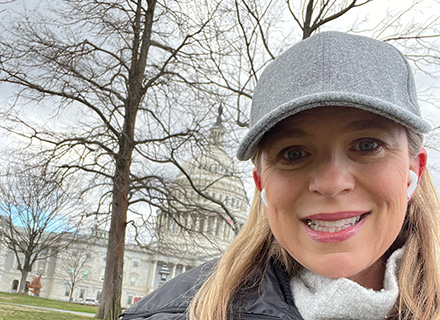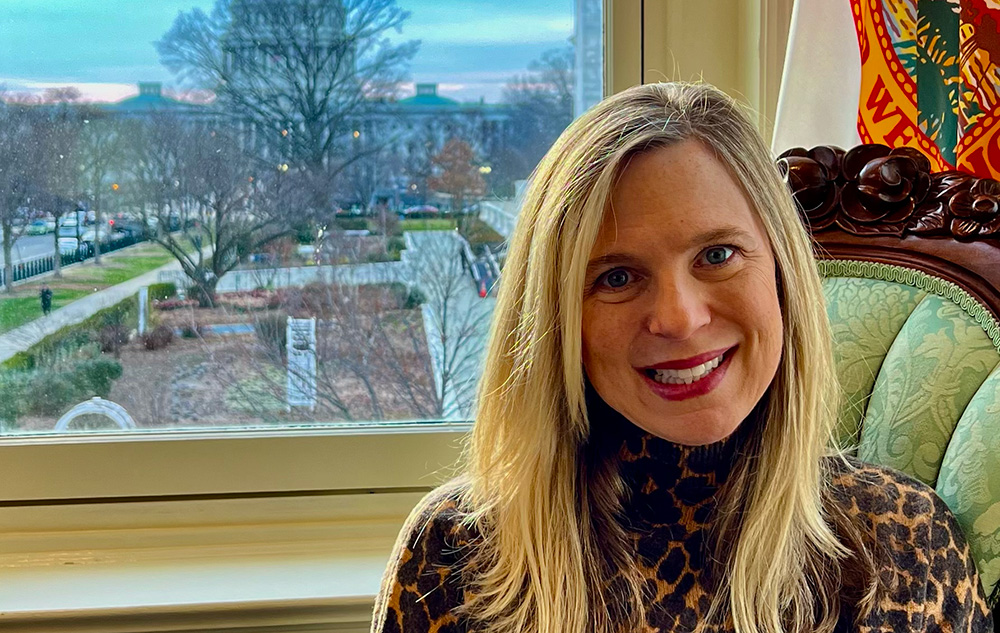By Sarah Sell , University Communications and Marketing
For the past month, USF St. Petersburg Psychology Professor Tiffany Chenneville has been working in Washington, D.C. to develop greater public trust in science.
Back in April, Chenneville was awarded an American Association for the Advancement of Sciences (AAAS) Executive Branch Fellowship, allowing her to join the scientific integrity team at the National Science Foundation. Working for the Office of the Director, the team is responsible for disseminating and ensuring adherence to the agency’s new scientific integrity policy.
A presidential memorandum in January 2021 instructed all federal executive departments and agencies to create a task force that gathered input from stakeholders and the public regarding scientific integrity practices. Scientific integrity involves following ethical principles and professional standards in conducting, reporting and evaluating research. It promotes honesty, transparency and accountability throughout the scientific process.
"This is important for promoting trust in science at a time in our society when there is a lot of mistrust in science. This work will build upon my work in ethics," said Chenneville, who is also the Marie E. and E. Leslie Cole Endowed Chair in Ethics.
With more than 150 fellowship placements in the executive branch each year, AAAS fellows help inform policy across a broad range of agencies and issues.
Chenneville's research focuses on pediatric and adolescent HIV. She has published extensively on the psychosocial issues affecting children and youth living with HIV and ethical issues related to research and treatment.

Chenneville is living in Washington D.C. for the fellowship but continues to teach graduate ethics courses at USF. She will return to USF full-time when her fellowship is over.
"I believe our responsibility as faculty members and as a university is to make sure we are doing work that helps to promote and build trust in science and getting our work out there in ways that can be digested and used by a general audience,” she said.
In 2023-2024, Chenneville was awarded the American Psychological Association's (APA) Springfield Policy Congressional Fellowship, which allowed her to work for a year on Capitol Hill with a member of Congress on policies to advance the health and well-being of LGBTQIA+ populations. For the highly competitive APA Congressional Fellowship, Chenneville drafted legislation, analyzed research, assisted with congressional hearings and prepared briefs in service of public policy.
"I feel very fortunate I was able to complete the congressional fellowship, and now I'm working within the executive branch. I'm getting this first-hand experience and understanding of how the government functions, and of course, that directly impacts all of us at USF,” Chenneville said.
